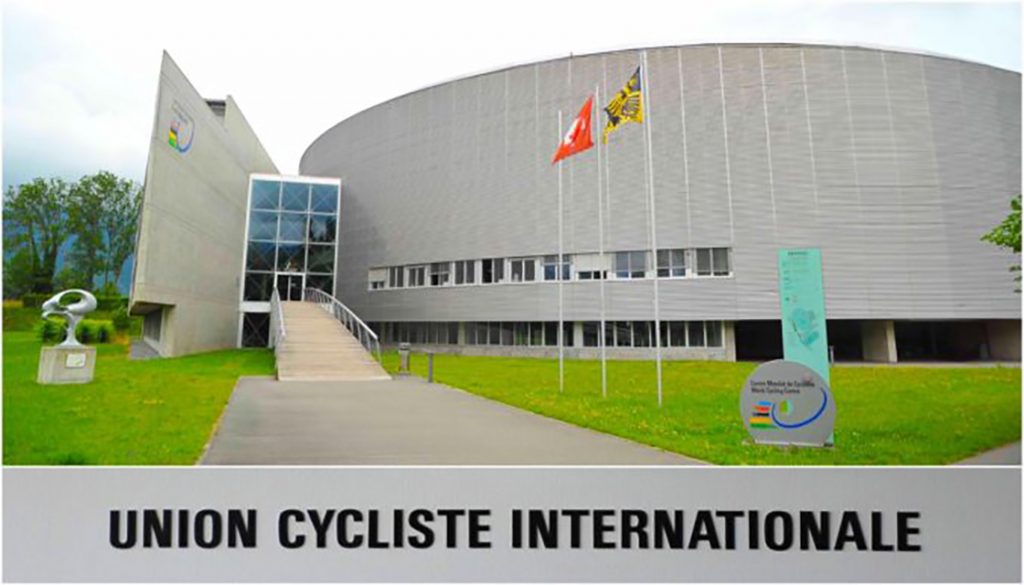UCI, the International Cycling Union, a name that we have heard and read so frequently when it comes to cycling. Cycling events in Malaysia such as the Le Tour de Langkawi, South East Asia Track Cup GP, Tour of Peninsular and the most recent Tour de Selangor are all sanctioned by UCI.
As we are approaching the new year, the new cycling season is about to begin with the 25th edition of Le Tour de Langkawi, taking the lead on 7 February 2020. It is a good time to take a closer look at UCI and understand what this Federation does for cycling.

We made a purpose visit to Aigle, Switzerland to World Cycling Centre (WCC) where the Headquarters of UCI is housed.
To encourage the global and unified development of cycling, the UCI established the UCI World Cycling Centre (WCC) in 2002. The WCC is a high level coaching and training centre for cycling. The main objective of WCC is to detect and train promising athletes to reach international level.
Designed for riders, coaches and cycling managers, the WCC has been given the label “Olympic Training Centre” by the International Olympic Committee (IOC).

It is amazing that this world class coaching and training centre has a 200m wooden indoor cycling track and stands with 680 seats, a 1,800sqm indoor multi-purposee infield area, a 250m synthetic athletics track, a 500-meter running track, a 400m BMX Supercross Olympic track with two start ramps, a fully equipped gym, a weights room, a pump track, a mechanical workshop, classrooms, and meeting rooms.

Founded in 1900, the UCI is the worldwide governing body for cycling. It develops and oversees cycling in all its forms and for all people, as a competitive sport, a healthy leisure activity and a sustainable means of transport, but also as a way to have fun.
It represents, to sporting and public institutions alike, the interests of 196 National Federations, five Continental Confederations, more than 1,500 professional riders, a million licensed competitors, millions of cycling enthusiasts and two billion bicycle users.
The UCI manages the development of cycling as a competitive sport and in all its other forms. It commits to reaching the highest standards in all our activity, and to earning and maintaining a reputation as an International Federation of outstanding performance and integrity.

The UCI manages and promotes cycling’s eight disciplines: road, track, mountain bike, BMX Racing, BMX Freestyle, cyclo-cross, trials and indoor cycling. Five of these are featured on the Olympic Games programme – road, track, mountain bike, BMX Racing and BMX Freestyle. Two in the Paralympic Games – road and track and four in the Youth Olympic Games – road, mountain bike, BMX Racing and BMX Freestyle.
The UCI manages the promotion of its own events, most notably the UCI World Championships for all disciplines. These competitions crown the UCI World Champions, who wear – for one year – the prestigious rainbow jersey. The UCI World Championships constitute the high point of the season in each discipline, and benefit from extensive international media coverage.
The UCI also organises the UCI World Cups – each of these season-long series brings together competitions of the highest level for the discipline concerned. The UCI World Cups rankings constitute the common theme running through each season. The race for the leaders’ jersey is a major challenge, and to be crowned the winner of a UCI World Cup is a significant sporting achievement.
Lastly, the UCI is responsible for ensuring cycling has the most advanced and efficient anti-doping programme, in collaboration with the World Anti-Doping Agency (WADA) and the National Anti-Doping Organisations (NADOs). However, the UCI is not directly involved in anti-doping testing and planning. Since 2013, these have been delegated to an independent entity, the Cycling Anti-Doping Foundation (CADF).




